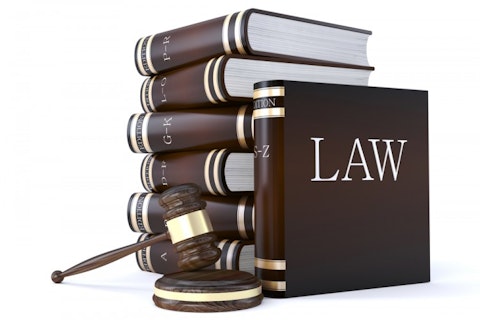Now more than ever it’s important to know a little history, so we’ve taken some of the work out of that with this list of the most important amendments in the Bill of Rights.
Even if you hate politics and you avoid getting political at all costs, you can’t deny the importance of the US Constitution and how it’s framed the way our government works (or doesn’t work). We all learned the basic principles of the Constitution in at least high school, and some of us even before that, so it’s pretty much assumed you’re aware of the various amendments. The Constitution as a standalone document didn’t really do much to outline the basic rights that the people have; therefore, it was called upon to add a series of changes that further explain what is and isn’t allowed. If you just read the Constitution itself, after the preamble it’s just a lot of vague terminology, so it’s no wonder it wasn’t ratified until the Bill of Rights was added.

holbox/Shutterstock.com
The US Constitution right now has 27 amendments. To amend the Constitution, an amendment has to be proposed by either house of Congress and voted in by a two-thirds majority in both houses or by a constitutional convention that’s called by two-thirds of the state legislatures. Many of the 27 amendments likely coincide with some of the most important historical events that changed the world forever. Because of the way the US government functions, it’s critical that when something major happens, like a Supreme Court case, for example, there is some type of law that backs up the ruling. That’s why a few amendments exist. On this list, however, we’re going to primarily focus on the most important amendments in the Bill of Rights, which is the first ten that were proposed and came alongside the Constitution when it was ratified in 1789.
In order to compile this list, we took a look at two websites: Quora and Scholastic. While each amendment is important in its own way, we tried to take the seven most important and qualify it. These are the ones that are most believed to be the most impactful on a day-to-day basis or as a general and important right that US citizens have (or are supposed to have).
Without further ado, let’s take a look at the most important amendments in the Bill of Rights.
7. The Second Amendment:
This is an amendment that has caused a lot of debate over the years as to the interpretation and how to best protect it while keeping people safe. The Second Amendment is the right to bear arms and enables individual states to maintain a well-regulated militia. It also allows individuals to acquire arms for protection. It’s unclear whether or not stricter gun control restricts this right, but because of the strong debate on both sides it’s definitely an important amendment.

Rattanapon Ninlapoom/Shutterstock.com
6. The Ninth Amendment:
The Ninth and Tenth Amendments are known as the “non-rights amendments.” The Ninth Amendment states that there are other rights people have that are not explicitly mentioned in the Bill of Rights that are retained by the states. This essentially means that individual states can make their own policies, like taxes. It’s ambiguous, which is why it’s so critical.

Arthimedes/Shutterstock.com
5. The Seventh Amendment:
The Seventh Amendment gives people the right to a jury trial in a civil lawsuit where the disputed property is worth more than $20. What this means is your case will be reviewed by a jury of 12 impartial peers rather than just a judge. Juries are an extremely important part of the judicial process and did not always exist prior to the Constitution; therefore, this is definitely one of the most important amendments in the Bill of Rights.

Sergiu Ungureanu/Shutterstock.com
4. The Fourth Amendment:
The Fourth Amendment through the Eighth Amendment focuses on the protection of rights of those accused of crimes. The Fourth Amendment ensures that government agents won’t be allowed to conduct improper and unnecessary searches of a person’s body, possessions, or home. A warrant sanctioned by a judge is required to allow this to occur and the warrant must outline the items eligible. This is a major protection.

3. The Sixth Amendment:
The Sixth Amendment explains that if a person is accused of a crime, they have a right to a speedy trial at a federal court by an impartial jury. It also ensures their right to a lawyer. This eliminates any ridiculous delays in the justice process and prevents anyone for being jailed for an indefinite period of time before trial.

wavebreakmedia/Shutterstock.com
2.
The Fifth Amendment:
“I plead the fifth” is an extremely popular phrase, so certainly you all know what it’s referring to by now. This amendment grants against self-incrimination, which means people can’t be forced to testify against themselves in a court of law. The government also can’t penalize anyone based on suspicion. People also can’t be tried twice for the same crime.

Galyna Motizova/Shutterstock.com
1. The First Amendment:
The First Amendment is by far the most important on the Bill of Rights, as it outlines the primary rights that people have in the US. It ensures freedom of religion, freedom of speech, freedom of the press, freedom to peacefully assemble, and the freedom to petition the government. These are the most basic liberties, and especially these days they have come under question regarding the extent of their meaning.

Alex Staroseltsev/Shutterstock.com
That concludes the list of the most important amendments in the Bill of Rights. Hopefully it gave you an insight on how the government functions and what the most critical points of primary documents are.





